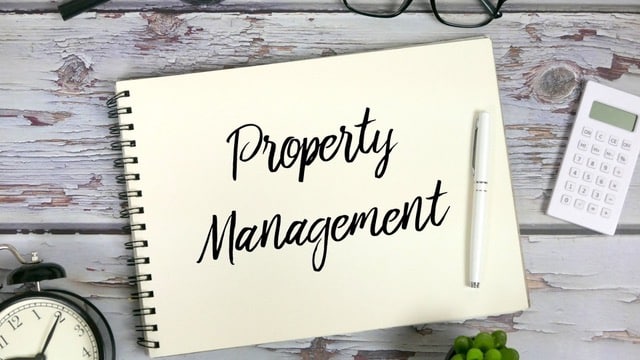At the time of writing this many homeowners are feeling the “financial crunch” of higher interest rates and soaring living expenses. Since property management tends to be viewed as a variable expense many homeowners and investors alike tend to mitigate costs by discussing self-management vs property management.
In the following we will explore the advantages and disadvantages of self-managing a rental property versus enlisting the services of a licensed property management company. We aim to provide insights into the key considerations involved in making this important decision, offering valuable information for landlords and property owners.
Self-Managing Pro’s & Con’s:
Pros:
Direct Cost-saving: Self-managing eliminates property management fees, allowing landlords to keep more of the rental income. However, this does not take into account the indirect costs such as your time and lack of daily oversight causing financial problems in the future.
Hands-on control: You have full control over property operations, tenant selection, and maintenance decisions. If you prefer to be hands on and approve/deny all actions on your property then this would bring comfort to your life knowing you are in full control and do not need to rely on anyone for this.
Direct tenant interaction: Self-managing provides an opportunity to build a personal relationship with your tenants, potentially leading to better understanding and cooperation. There are so many occurrences where a poor manager can negatively impact your tenant relationship simply by lack of oversight and strong communication. Tenants have needs that need to be met and you can certainly adhere to them easier if you are the primary contact.
Flexibility: You can set your own schedule and handle issues at your own convenience. Since you are the sole person in control of managing you can have flexibility and perhaps cater to your other commitments. Unlike a normal employed position you as the owner can dictate when and how work/communication gets completed.
Cons:
Time-consuming: Managing a rental property can be time-intensive, requiring substantial effort for tasks like advertising, screening tenants, and addressing maintenance requests. This tends to be a tipping point for many investors who still work a normal “9-5” where their time is extremely limited.
Lack of expertise: Without professional knowledge, you may face challenges in dealing with legal issues, difficult tenants, or complex maintenance problems. Most often our property management company tends to take over situations where the owner has become extremely frustrated given a particular situation and does not have the experience or necessary tools to solve the problem. This is fine for us but tends to create more work and more time wasted due to unwinding of certain items that should not have happened in the first place. E.g. filing the wrong paperwork when filing a rental tenancy dispute. If done improperly this can backlog and possibly get your case thrown out or worse the wrongful party could end up being successful.
Limited resources: Self-managing may limit your access to a network of trusted contractors, property management software, and other resources that property management companies typically have. As property managers tend to manage more than an average owner we are able to develop trusted resources and trades in order to execute tasks more efficiently both in operations and financially. That alone could afford the “cost” of a PM by simply arranging better expenses through vendors.

Licensed Property Management Pro’s & Con’s:
Pros:
Professional expertise: Property management companies possess extensive knowledge and experience in areas like tenant law, marketing, maintenance, and rent collection. If you are new to real estate or more importantly you don’t even live in the area this would be highly recommended to get trusted advisors in the region to gain expertise.
Early on I remotely invested in several markets myself and invested heavily into property management services since the ability to conduct day to day tasks were not a good use of my time. For example, if you have a simple tenant issue (clogged drain line) that requires a licensed plumber to attend.
You would need to organize this quickly and get several quotes to make sure you are getting a decent price. After which you would need to verify if the work was actually completed which may require another person to verify. A lot of vendors tend to take advantage of those who invest remotely but this is not the case if you have local representation.
Time-saving: By outsourcing property management tasks, landlords can free up their time for other personal or professional commitments. Previously we discussed the “time value” and how this can be a cost that you sacrifice. For example if you are an amazing artist and you can sell your paintings (which takes time) for thousands of dollars why would you spend that same time not only doing something you likely don’t love for a fraction of the return. If you’re a painter…be a painter!!
It doesn’t mean you can’t invest in real estate or even tackle a few property related tasks here and there but this would be getting you further away from the goal of real estate. To achieve a life of happiness and fulfillment.
Tenant screening: Property management companies usually have strict tenant screening processes, resulting in reliable and responsible tenants. Nowadays it is easier to screen tenants for your average investor with such programs like Front Lobby and Single Key, however if you cannot interpret the data that it provides this may still lead you down a path for gaining poor tenants.
Most times PM experience will allow for the subtle balance between bad credentials and bad tenants. This often results in a higher than expected vacancy expense or lower than expected tenant relationship (e.g. eviction). Using tools without knowledge & experience is almost the same as having no tools at all.
Cons:
Cost: Hiring a property management company means incurring additional expenses, usually in the form of management fees, which can vary depending on the company and location. AS discussed previously this can easily be subsidized if a PM were to avoid a major expense due to their knowledge. For example, if a tenant notifies an owner that the toilet is not working if you were self managing remotely you would be forced to ask for a tech to visit the site. Upon visiting, the tech would advise that the part is not broken but merely displaced. They would then proceed to easily repair without tools or material. They would then charge the owner for a truck, trip, and repair fee estimated at $200/visit.
Whereas a PM can visit at no charge and double up on a routine inspection anyway and fix the item themselves without any expense to the owner. They would then discuss with the tenant that most issues are easily fixed without the need for a visit. The PM likely paid for themselves several months worth of “management fees” in that visit alone.
Lack of control: You relinquish control over property-related decisions to the property management company, including tenant selection, rent pricing, and maintenance schedules. This might also be seen as a benefit since you most likely want to leave the control in the hands of a professional and free up your mental energy for other areas of your life.
Communication challenges: Miscommunication or lack of transparency between the landlord and property management company can lead to misunderstandings or unsatisfactory outcomes. The number 1 complaint of poor property management companies is the lack of communication.
From time to time there will be a problem at the property regardless of how experienced the property manager can be, but the way they communicate and inform the owner tends to be a winning formula for success. This is a sad truth about many PM companies and hence why a referral would go further than simple online reviews. Talk to the actual owners directly who are receiving the service and continuing to perform well for others.
Conclusion:
As you can see there are many pros and cons to both scenarios which ultimately comes down to how you want rental ownership to operate within goals. Fueling your happiness is paramount and should not be taken lightly. Self management can work well if this is truly something that makes you happy and you love dealing directly with your properties and tenants alike. However, if you strive to achieve a goal beyond “toilets and tenants” I recommend that you design a program that involves a property manager that comes highly recommended.
If you are looking for Property Management Services in the Edmonton, AB market and wish to receive a FREE property assessment please click the link here to discuss your options and how we can serve you now or in the future. Happy Investing!
Phillip is one of our SAVVY INVESTOR TRUSTED PARTNERS with WPM Property Services




